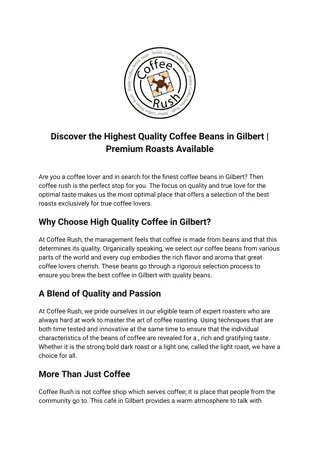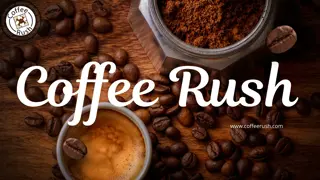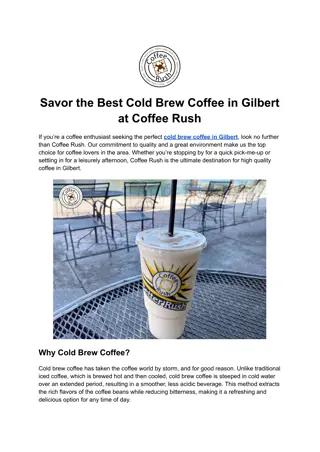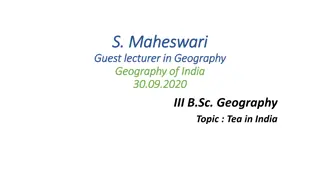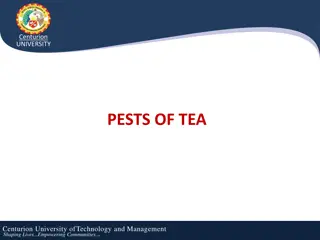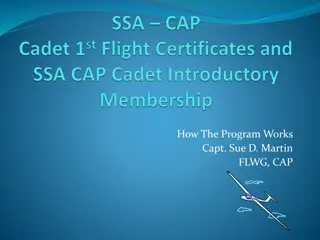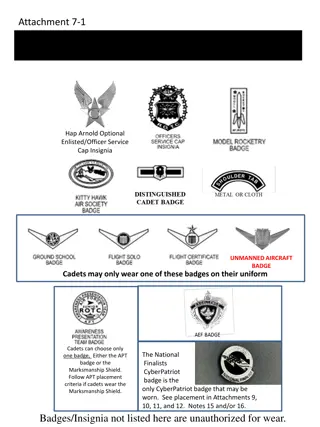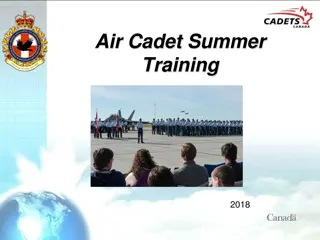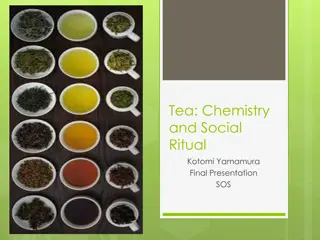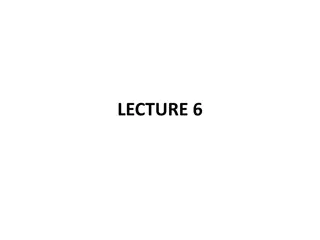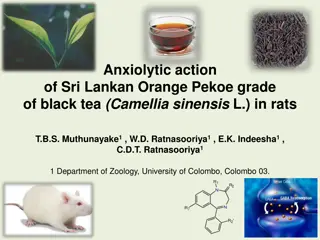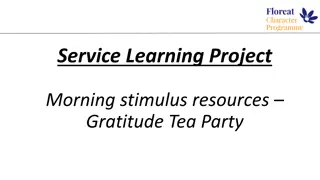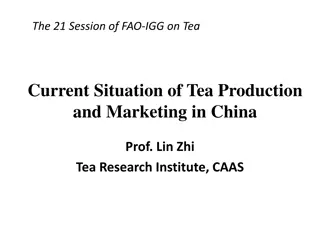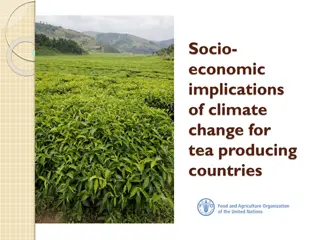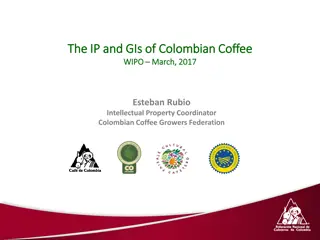Essential Tea and Coffee Making Skills for Cadets
Learn why cadets make tea and coffee, the importance of good tea and coffee-making skills, common complaints, brewing instructions, the milk controversy, and the impact of a well-made cup of tea on staff morale.
Download Presentation

Please find below an Image/Link to download the presentation.
The content on the website is provided AS IS for your information and personal use only. It may not be sold, licensed, or shared on other websites without obtaining consent from the author.If you encounter any issues during the download, it is possible that the publisher has removed the file from their server.
You are allowed to download the files provided on this website for personal or commercial use, subject to the condition that they are used lawfully. All files are the property of their respective owners.
The content on the website is provided AS IS for your information and personal use only. It may not be sold, licensed, or shared on other websites without obtaining consent from the author.
E N D
Presentation Transcript
Scope Why do cadets make Tea & Coffee? Why this lesson? Tea Coffee Glossary
Why do cadets make Tea & Coffee? Punishment? Staff are lazy? No. Important life skill. Because we need a squadron serf for the night to feed the fact we are all hopelessly addicted to caffeine. (Pity us.)
Why? (cont) Good quality tea and coffee making skills are essential. Work: In particular work experience. Internships Menial work with no future prospects Social Convention: Bad news Good news Essentially anything that happens in England. Ever.
Why this lesson? You re all generally crap at it. Common complaints: Has this even seen a tea bag? Did they even boil the kettle? There s a tea bag in my cup Did they put any tea in this milk? WHERE S MY #@: &%! SUGAR!!! ARGGHH #@: &%! SUGAR!!! Good tea = Happy Staff.
Tea A hot drink made by infusing the dried, crushed leaves of the tea plant in boiling water. Teabag + BOILING water + Milk + Sugar (optional) Teabag = Tea Any of these being absent (or present) = de-motivated and de-energised staff.
Stage 1: Brewing Put more water than needed in the kettle. 1. 2. Turn it on! 3. Take tea and coffee orders while kettle is boiling. 4. Calculate how many tea bags you need. (1 tea bag per person, plus one for the pot.) 5. Warm the pot. 6. Add teabags to teapot 7. Take the teapot to the kettle and add boiling water. 8. Leave to brew.
Milk Important issue: Milk first or second? Tenthly, one should pour tea into the cup first. This is one of the most controversial points of all; indeed in every family in Britain there are probably two schools of thought on the subject. The milk-first school can bring forward some fairly strong arguments, but I maintain that my own argument is unanswerable. This is that, by putting the tea in first and stirring as one pours, one can exactly regulate the amount of milk whereas one is liable to put in too much milk if one does it the other way round. - George Orwell
Stage 2: Making the perfect cuppa We now have a tea pot full of HOT tea infusion. Arrange the mugs for pouring 2. Pour the tea into the mugs 3. Add a dash of milk. This regulates the strength of the cuppa. 4. People with a taste for weak or milky tea need more milk. 5. How strong is strong ? 1.
Stage 3: Sugar Sugar is an optional extra, and divides opinion. Add the correct amount of sugar, as requested. Usually heaped teaspoons, unless specified. STIR IT!!!!!!!!
Coffee An addictive substance which is made from ground coffee beans and water. (And is over hyped.) Boiling Water + 1 Teaspoon of Coffee + Milk. (Sugar) Important issue: Milk or water first? Adding boiling water directly to coffee may burn it. Add milk first.
Coffee Making Take orders. After you have poured the boiling water into the tea pot, re-boil the kettle. At the stage where you arrange the mugs for tea, place 1 teaspoon of coffee in the mugs which require coffee. Pour a small amount of milk in to the coffee cups, this prevents the boiling water burning the coffee) Add boiling water. (and sugar if required) Stir like heck!
Glossary Char, Rosie Lea, Brew, Cuppa Too Weak White, No Sugar (White nun ) Black, No Sugar (Black nun ) Milk, Two sugars Not Fortnightly Julie Andrews Whoopi Goldberg NATO Standard Interview with tea and biscuits. Interview with tea and no biscuits. Interview with no tea and no biscuits.




